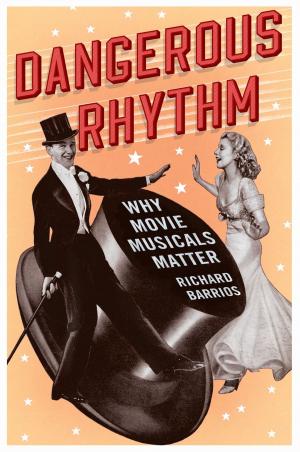Political Culture and Secession in Mississippi
Masculinity, Honor, and the Antiparty Tradition, 1830-1860
Nonfiction, History, Americas, United States, Civil War Period (1850-1877)| Author: | Christopher J. Olsen | ISBN: | 9780190284992 |
| Publisher: | Oxford University Press | Publication: | October 19, 2000 |
| Imprint: | Oxford University Press | Language: | English |
| Author: | Christopher J. Olsen |
| ISBN: | 9780190284992 |
| Publisher: | Oxford University Press |
| Publication: | October 19, 2000 |
| Imprint: | Oxford University Press |
| Language: | English |
This groundbreaking study of the politics of secession combines traditional political history with current work in anthropology and gender and ritual studies. Christopher J. Olsen has drawn on local election returns, rural newspapers, manuscripts, and numerous county records to sketch a new picture of the intricate and colorful world of local politics. In particular, he demonstrates how the move toward secession in Mississippi was deeply influenced by the demands of masculinity within the state's antiparty political culture. Face-to-face relationships and personal reputations, organized around neighborhood networks of friends and extended kin, were at the heart of antebellum Mississippi politics. The intimate, public nature of this tradition allowed voters to assess each candidate's individual status and fitness for public leadership. Key virtues were independence and physical courage, as well as reliability and loyalty to the community, and the political culture offered numerous chances to demonstrate all of these (sometimes contradictory) qualities. Like dueling and other male rituals, voting and running for office helped set the boundaries of class and power. They also helped mediate the conflicts between nineteenth-century American egalitarianism, democracy, and geographic mobility, and the South's exaggerated patriarchal hierarchy, sustained by honor and slavery. The political system, however, functioned effectively only as long as it remained a personal exercise between individuals, divorced from the anonymity of institutional parties. This antiparty tradition eliminated the distinction between men as individuals and as public representatives, which caused them to assess and interpret all political events and rhetoric in a personal manner. The election of 1860 and success of the Republicans' antisouthern, free soil program, therefore, presented an "insulting" challenge to personal, family, and community honor. As Olsen shows in detail, the sectional controversy engaged men where they measured themselves, in public, with and against their peers, and linked their understanding of masculinity with formal politics, through which the voters actually brought about secession. Political Culture and Secession in Mississippi provides a rich new perspective on the events leading up to the Civil War and will prove an invaluable tool for understanding the central crisis in American politics.
This groundbreaking study of the politics of secession combines traditional political history with current work in anthropology and gender and ritual studies. Christopher J. Olsen has drawn on local election returns, rural newspapers, manuscripts, and numerous county records to sketch a new picture of the intricate and colorful world of local politics. In particular, he demonstrates how the move toward secession in Mississippi was deeply influenced by the demands of masculinity within the state's antiparty political culture. Face-to-face relationships and personal reputations, organized around neighborhood networks of friends and extended kin, were at the heart of antebellum Mississippi politics. The intimate, public nature of this tradition allowed voters to assess each candidate's individual status and fitness for public leadership. Key virtues were independence and physical courage, as well as reliability and loyalty to the community, and the political culture offered numerous chances to demonstrate all of these (sometimes contradictory) qualities. Like dueling and other male rituals, voting and running for office helped set the boundaries of class and power. They also helped mediate the conflicts between nineteenth-century American egalitarianism, democracy, and geographic mobility, and the South's exaggerated patriarchal hierarchy, sustained by honor and slavery. The political system, however, functioned effectively only as long as it remained a personal exercise between individuals, divorced from the anonymity of institutional parties. This antiparty tradition eliminated the distinction between men as individuals and as public representatives, which caused them to assess and interpret all political events and rhetoric in a personal manner. The election of 1860 and success of the Republicans' antisouthern, free soil program, therefore, presented an "insulting" challenge to personal, family, and community honor. As Olsen shows in detail, the sectional controversy engaged men where they measured themselves, in public, with and against their peers, and linked their understanding of masculinity with formal politics, through which the voters actually brought about secession. Political Culture and Secession in Mississippi provides a rich new perspective on the events leading up to the Civil War and will prove an invaluable tool for understanding the central crisis in American politics.















